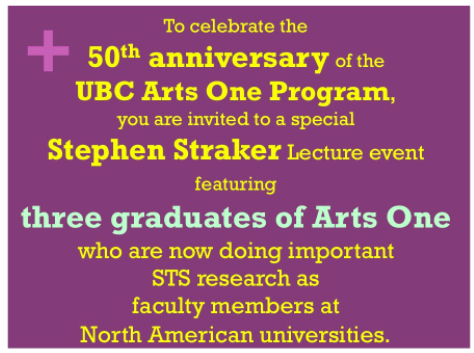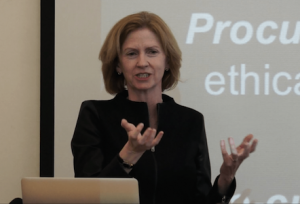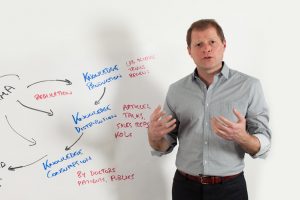Past Speakers
About Stephen Straker
The 2023/24 Stephen M. Straker Memorial Lecture
Judy Z. Segal
Professor Emeritus, Department of English Language and Literatures, University of British Columbia
March 7, 2024, 5 to 6:30 PM
Location: MATH 100
Still Listening to Prozac: STS, Rhetoric, and “Mental Health”
Since the launch of STS at UBC—and with the wisdom of Stephen Straker—rhetorical studies of science, technology, and medicine have been central to the interests of the program. My own work has focused on rhetorical elements in the theories and practices of health and medicine. My topics have included, inter alia, persuasions at work in discourse on migraine, breast cancer, death and dying, illness anxiety, “female sexual dysfunction,” aging/ageism, and health justice. My interest in the rhetoric of diagnosis itself led to my current work on low moods and their meanings. My lecture will begin with a brief history of STS at UBC (I have the archive!) and notes on the contributions of rhetorical studies to the work of the program. I will then give an account of the cultural and material significance of the persuasiveness of Peter D. Kramer’s (1993) Listening to Prozac—and of Kramer’s public and sustained allegiance, 30 years on, to the theses of that book. The lecture will address some of the ways that circulating discourse about mental health—here, discourse on “disordered” moods—is taken up in individual selves and in populations.
Judy Z. Segal (she/her) is Professor Emeritus, Department of English Language and Literatures, University of British Columbia. She was, in 2002, Chair of the Provost’s Committee to Propose an STS Program at UBC; she was a founding faculty member in that program. She was, as well, a founder of Rhetoric of Health and Medicine as a field. Her essays appear in rhetoric journals, interdisciplinary health and STS journals, and medical journals—and in essay collections across disciplines; she is author of Health and the Rhetoric of Medicine (2005). Professor Segal has been a member of the President’s International Advisory Committee of the Canadian Institutes of Health Research, a Distinguished Scholar at the Peter Wall Institute for Advanced Studies, and a recipient of a Killam Teaching Award. She is a member of the Advisory Panel on Medicine and Society for the Canadian Medical Association Journal.
The 2018/19 Stephen M. Straker Memorial Lecture
Sergio Sismondo
Professor of Philosophy and Sociology
Queen’s University
“Big Pharma’s Invisible Hands”
Thursday, 7 February 2019
5 to 6:30 pm
Buchanan A104
The themes for this talk are drawn from Professor Sismondo’s recent book, Ghost-Managed Medicine, about the regimes of knowledge and power in the modern medicine. Here’s a portion of the description of the book: “Most agents for drug companies aim to tell the truth, but the truths they tell are drawn from streams of knowledge that have been fed, channeled and maintained by the companies at every possible opportunity. Especially because those companies have concentrated influence and narrow interests, consumers and others should be concerned about how epistemic power is distributed – or ‘political economies of knowledge’ – and not just about truth and falsity of medical knowledge.”
Sergio Sismondo is the author of Ghost-Managed Medicine: Big Pharma’s Invisible Hands (Mattering Press, 2018), An Introduction to Science and Technology Studies, 2nd ed. (Wiley-Blackwell, 2010), The Art of Science (with Boris Castel) (Broadview Press, 2003), and Science without Myth: On Constructions, Reality and Social Knowledge (SUNY Press, 1996). With Jeremy Greene, he edited The Pharmaceutical Studies Reader (Wiley, 2015). He is editor of Social Studies of Science, one of the leading Science and Technology Studies journals in the world.
The 2016/17 Stephen M. Straker Memorial Lecture
March 13, 2017
4 to 6 pm
Earth Sciences Building 1012

This year, in order to kick off the celebrations of the fiftieth anniversary of the UBC Arts One Program, STS@UBC has a special Stephen Straker Lecture event featuring three graduates of Arts One who are now doing important STS research as faculty members at North American universities.
The event will feature brief research talks and a panel discussion.
General Topic: Pathways and Trajectories: Arts One, STS, and a Liberal Arts Education
Lindsey Richardson (Sociology, UBC): “From Durkheim’s Institutionalism to the Downtown East Side”
Janet Vertesi (Sociology, Princeton): “From Leviathan to the Mars Rover”
Audrey Yap (Philosophy, UVic), “Evidence and Bias: Science Tells You How to Clone a T-Rex but Arts Tells You It’s a Bad Idea”
The 2015/16 Stephen M. Straker Memorial Lecture
Charis Thompson, “Getting Ahead? Embodied Technologies, Democracy, and Inequality in the 21st Century.”
Thursday, 24 March 2016, 4:30-6:00 pm in IBLC 182

Thompson’s talk looks at biometrics, egg freezing, gene editing, and bio-wearables, and compare and contrast elites’ and less privileged users’ interactions with these embodied technologies. She considers how these technologies both naturalize and trouble the idea of meritocratic elites. She draws on STS, history of science, and on feminist, critical race, and disability scholarship to make the argument that the study of embodied technologies shows us that technical inequality—and consequently, substantive political inequality—has been growing alongside recent increases in income inequality.
Charis Thompson is Chancellor’s Professor and Chair of Gender & Women’s Studies, and a former founding director of the Science, Technology, and Society Center at UC Berkeley. She has a BA from Oxford University, and got her Ph.D. from the Science Studies program at UC San Diego. Before coming to Berkeley, she taught in the Science and Technology Studies Department at Cornell University, at the University of Illinois at Urbana-Champaign, and in the History of Science Department at Harvard University.
She is the author of Making Parents: The Ontological Choreography of Reproductive Technologies (MIT Press, 2005), which won the 2007 Rachel Carson Award from the Society for the Social Study of Science, and of Good Science: The Ethical Choreography of Stem Cell Research (MIT Press, 2013).
Past Speakers
2023/24 Judy Z. Segal (University of British Columbia)
2014/15: Lorraine J. Daston (Max Planck Institute for the History of Science)
2013/14: Barbara Herrnstein Smith (Duke)
2012/13: Steven Shapin (Harvard)
2011/12: Adrian Johns (University of Chicago)
2010/11: Ted Porter (UCLA)
2009/10: Ludmilla Jordanova (UC London)
2007/08: Robert Westman (UCSD)
2006/07: Simon Schaffer (Cambridge)
About Stephen Straker

Stephen Straker (1942-2004) was a historian of science at UBC for thirty years and the chief inspiration for the creation of the STS program. We honor his memory with an annual distinguished lecture.
Stephen was an award-winning teacher and some of his own undergraduate lectures in history of science have been preserved here:

